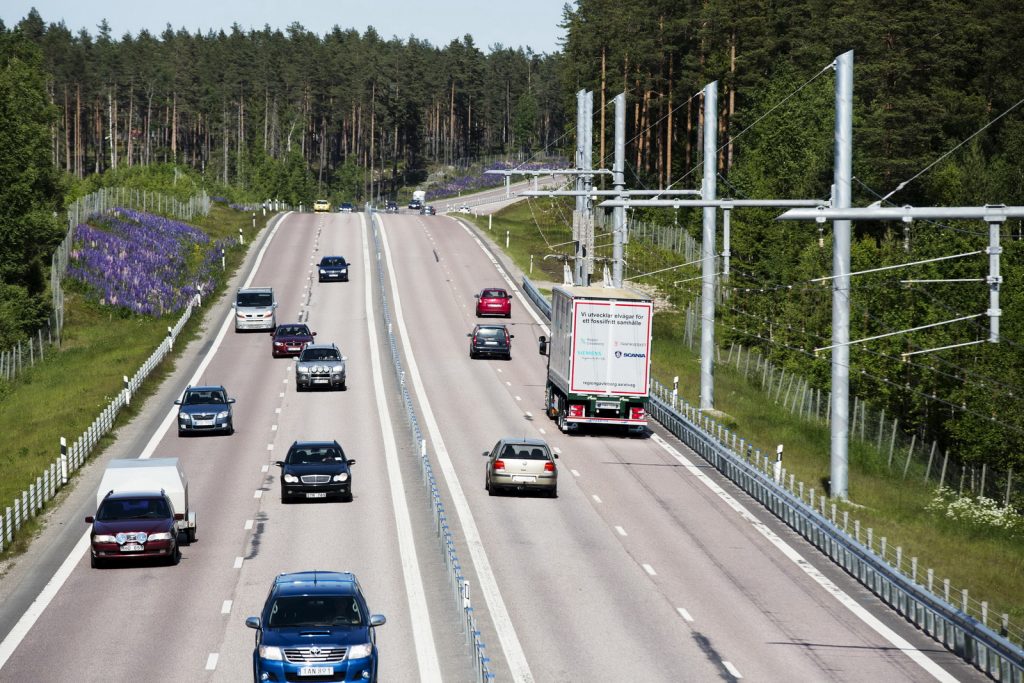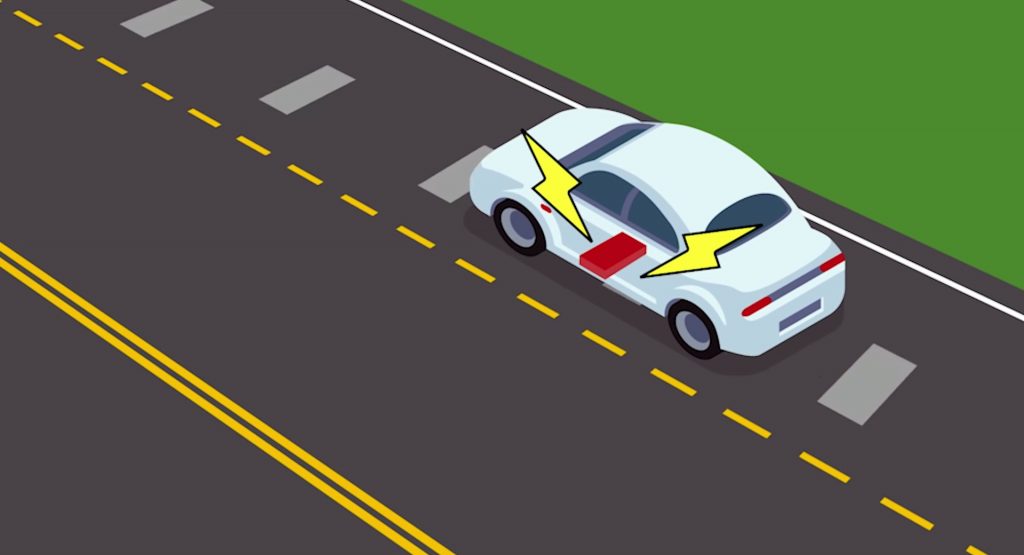Sweden has decided it will make history, opening the world’s first permanently electrified stretch of road in 2025. The electric road system (ERS) will enable EVs to recharge on the move, enabling greater distances to be traveled between charge station visits.
The highway chosen is the E20, located in the middle of Sweden’s major cities, Stockholm, Gothenburg, and Malmö. It’ll be the first part of a greater plan that envisages over 3,000 kilometers (1,864 miles) of Swedish roads getting the electric treatment. There’s just one small problem, though: they haven’t yet settled on which type of electric road the first motorway will feature.
Related: China’s New Electric Trolley-Trucks Draw Power From Overhead Wires Or A Battery

Sweden has been a pioneer in electrified road testing and has already trialed three leading solutions. In 2016, a two-kilometer (1.2-mile) stretch of road in Gävle, central Sweden, was opened that used overhead electric lines to allow heavy vehicles to recharge via pantographs — similar to an electric train or a tram. Later, a 1.6-kilometer (0.9-mile) stretch of road in Gotland was electrified using charge coils positioned beneath the asphalt. In 2018, Trafikverket introduced the world’s first charging rail on a two-kilometer (1.2-mile) stretch that allowed electric trucks to lower a moving arm that picked up power.
While the use of overhead power lines is exclusively for trucks, there could be some advantages for those who own private cars if an inductive under-road charging system is implemented. This tech works much like Qi wireless charging in mobile phones. A pad or plate is embedded under the road, and electric vehicles that are equipped with a receiving coil are recharged as they pass over it. Such offerings have also been trialed in Germany and Michigan.
You don’t have to own an EV to understand how convenient the ability to charge on the go would be. Not only would the technology extend the usable range of an electric vehicle, but it could also lead to cheaper EVs thanks to smaller batteries.
According to researchers, only 25 percent of the Swedish road network would need to be electrified to present the most efficient option. Euro News reports that Sweden has partnered with Germany and France to share experience and research findings, while the UK, U.S., and India are also doubling down on their efforts to construct electrified roads.




